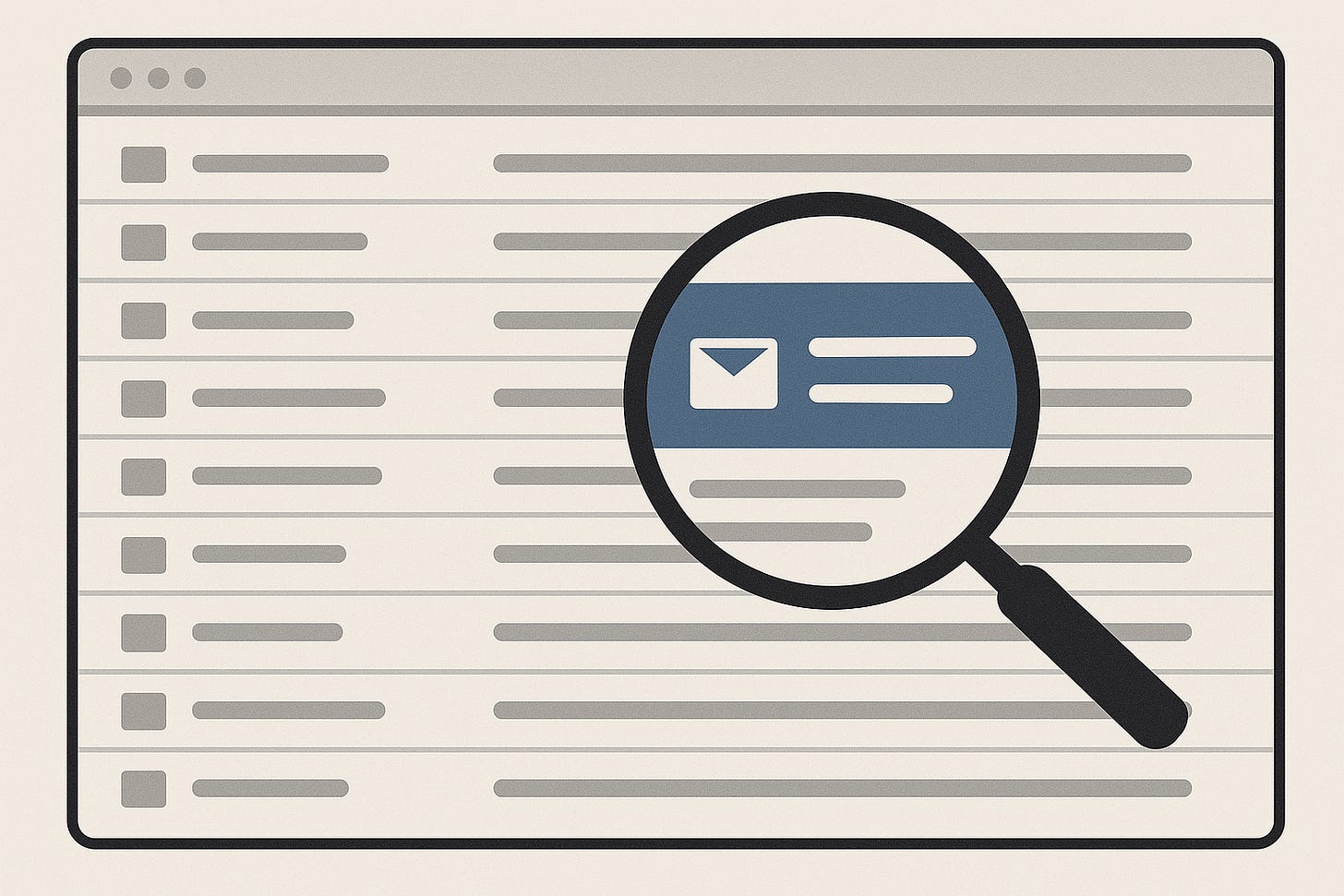New York Times piece on scheduling assistants
Intention can’t be outsourced to AI
TLDR: Even the smartest AI can’t replace the human intention, judgment, and meaning-making that come from actively choosing how we spend our time.
Word count: 551
Read time: 3 mins
I contributed to a New York Times (Wirecutter) article, I Tested 9 AI-Powered Scheduling Assistants. My Favorite Is the One With the Least AI, which was published yesterday. It’s about automated scheduling software to link to-do lists and other places where tasks lurk, and the calendar.
The reviewer, Matthew Guay, went through these with a fine-tooth comb, spending 24 hours reviewing the different apps and consulting several time management experts (including me) in the process.
The article is thorough and excellent, drawing a clear, tangible, useful conclusion (which I happen to agree with). I’ll leave you to (manually) carve out a 15-min timebox to read the article and find out which software won, along with juicy bits about Calendly-type functionality and where AI’s poor cousin, automation, should suffice.
I want to focus on a philosophical point that the piece throws up.
AI can do a lot. We’re still working out the use cases, but used in the right way, it can be immensely powerful. It’s captured the attention of Silicon Valley, politicians, and hundreds of millions of monthly active users around the world. And it does what it does quickly, much, much quicker than clunky, clumsy humans. It writes quicker, codes quicker, translates quicker. And it can schedule quicker.
But it’s still not the answer for scheduling, for a few reasons.
First, it doesn’t do a great job…yet. Matthew points out some examples of this in his article, such as that the AI assumes the wrong energy levels required by physical exercise vs writing, and that doesn’t suit the author and obviously won’t suit everyone since it’s so personal.
Second, the AI can’t do a good job…ever. It misses the context of your life. How you’re feeling, the interrelation of disparate tasks, what your boss just said to you on this morning’s Zoom call. And AI may never have all that context for a couple of reasons. It might simply never be able to get hold of such a wide and varied set of data points. We also might not want it to; such data is too private, too intimate, too dangerous to have up there in the cloud, potentially accessible by anyone.
Third, even if the AI could schedule your tasks perfectly—just as you would—this would not actually be the answer we’d want. The process is an essential component in the machinery here. That overused cliche is apt: it’s the journey, not the destination. The cognitive whirrings you go through in deciding whether one task is more important than another is essential for: feeling motivated to undertake that task, for getting started on it, for having the wherewithal to get it finished.
To take this idea a little further, suppose the AI could do the task for you. That might be fine in the case of some data entry, perhaps. But what about writing? The process of writing achieves a piece of writing, sure. But it also rewires our brains on and around that topic (and other interrelated topics), so we understand it deeper and better. Or consider meditation, exercise, and learning. For all of these activities and many more, it’s the experience that matters much more than the outcome.
Intention can’t be outsourced to AI.
There’s a single chapter about technology that might support timeboxing in my book, Chapter 23: Tools & Tech. In it I take the view that you don’t need any specific technology to timebox effectively. Take the benefits for collaboration, synchronization, back-ups and native features that you’ll get from a regular shared digital calendar. Establish a water-tight system for your to-do list and moving items from there to your calendar. That’s sufficient.
I opened that chapter with the pessimistic line ‘This chapter won’t age well’. But so far, I think it’s aged fine.
Marc
Links you may like
7 days of Timeboxing (the free email micro-course)
Timeboxing, the book (US)
Timeboxing, the book (UK)
Timeboxing, el libro (Español)
Connect with me on LinkedIn



